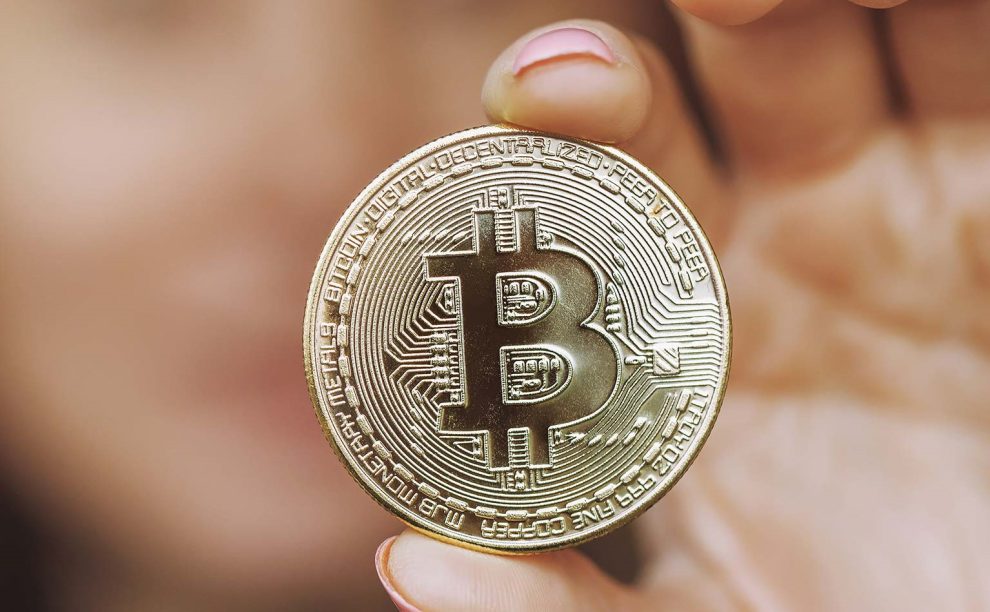A Guide for New Crypto Investors on How to Buy Bitcoin and Other Cryptocurrencies
The next stage in crypto investing is to actually get in after you’ve mastered the jargon, accepted the risk, and taken care of your other financial obligations.
Although there are thousands of different cryptocurrencies, experts advise that you avoid most of them. Cryptocurrency prices change by the hour, which is especially true for lesser-known coins. Even more established cryptocurrencies, such as Ethereum and Bitcoin, are subject to volatility, but they have a better track record of gaining in value over time.
The procedure for purchasing Ethereum — or any other cryptocurrency — is the same as for purchasing Bitcoin, but we’ll use Bitcoin as an example throughout because it’s the most valuable and widely-held crypto on the market at the moment.
Here are the steps to become a new cryptocurrency investor:
Decide on an Exchange
Bitcoin isn’t yet available for purchase through your bank or investment firm, however some institutions are attempting to make it possible in the future. For the time being, you’ll have to convert your US dollars for Bitcoin or other digital currencies through a cryptocurrency trading platform.
There must be plenty of cryptocurrency exchanges where you may buy cryptocurrency online, but Coinbase, Gemini, and Kraken are three of the most popular. Such exchanges are online marketplaces for buying cryptocurrency. and selling cryptocurrency.
A few things can help to narrow your search for the best platform:
Security
Unlike FDIC-insured bank accounts, cryptocurrency holdings are not backed by a central institution. If your account is hacked or the site where you store your coins is hacked, you could lose all of your money.
If you choose to keep your cryptocurrency on an exchange account rather than moving it to your personal wallet, make sure you choose one that employs offline, cold storage and has robust anti-theft measures. Some exchanges also have their own insurance coverage in place to protect investors from hackers.
Continue reading: (Bitcoin or Ethereum: What New Crypto Investors Should Know About Both Before They Buy)
Fees Exchange fees can range from a flat fee to a percentage of your trades, and they may be applied as a flat fee upfront or as a percentage of your trades. Fees are often charged each transaction and are depending on price volatility.
While fees should be taken into account, experts suggest that you get what you pay for, especially when using larger, more known exchanges such as Coinbase. If an exchange offers extra protections, security, or other services that are important to you, it may be worth paying a somewhat higher charge.
On top of the market price, some exchanges charge fees depending on a spread, or margin. Others charge a set rate or a percentage of your total purchase, which can vary depending on where you are, how you pay, and other factors.
Maker-taker fees, which are based on market price swings, are commonly used by exchanges with more active trading features. You’ll be charged a (typically larger) “taker” fee if you buy at the current market price. Alternatively, you can specify a price that you want to buy at and wait for the market to reach that level. This is referred to be a limit order, and it comes with a “maker” fee.
Before you sign up, make sure you understand the costs you’ll be charged, which you can see on the exchange’s website. The price structure should be clearly mentioned when you make your purchase, but it’s a good idea to budget for it ahead of time so you don’t overspend.
Coins that are available
Not every coin is available on every exchange.
Popular coins like Bitcoin (BTC) and Ethereum (ETH) are available on nearly all crypto exchanges, but lesser obscure altcoins may only be offered on a few. This shouldn’t be an issue for most new investors because experts recommend sticking with these two major cryptos and more mainstream exchanges like Coinbase.
Make a deposit into your account
When you create your account, you may be asked to give information such as your Social Security number, ID, and source of income, depending on the exchange you choose.
Not all exchanges offer every single cryptocurrency out there.
Popular coins like Bitcoin (BTC) and Ethereum (ETH) are available on most crypto exchanges, while more niche altcoins may only be available on certain exchanges. Since experts recommend sticking with these big two cryptos and more mainstream exchanges like Coinbase, this shouldn’t be an issue for most new investors.
2. Fund Your Account
Depending on the exchange you choose, you may need to provide information like your Social Security number, ID, and your source of income when you create your account.
To transfer U.S. dollars into your exchange account, most exchanges allow you to connect your bank account or debit card. Depending on how you load your account, you may incur varying costs; normally, bank transfers are less expensive than card choices.
Remember that financing your account isn’t the same as buying cryptocurrency. You never want to leave money in your account that hasn’t been invested, just like you don’t want to leave money in your account that hasn’t been invested. You’ll still need to swap your dollars into Bitcoin once you’ve funded your account.
3. Make a Purchase
You’ll be able to place your Bitcoin order once you’ve connected a payment method. Based on the exchange you use, this process may differ.
If you’re using a platform like Coinbase or PayPal, you can usually just enter the amount in dollars you wish to trade for Bitcoin and acquire it at the current rate (after accounting for any fees).
You may be able to locate both market and limit orders if you choose an exchange geared for more active trading, such as Coinbase Pro. A market order indicates that you want to buy cryptocurrencies right now, at the current market price. You’ll place a limit order if you wish to pay a specific price for the cryptocurrency. The cash will be automatically purchased once it reaches that level.
You’ll most likely be buying a fractional share of a coin with Bitcoin – a single coin has recently traded for between $30,000 and $60,000. Whatever amount you put in will be expressed as a percentage of the total Bitcoin in the exchange. (For example, if you invested $1,000 in Bitcoin at its early July value of around $34,000, you would possess 0.029 Bitcoin.)
4. Maintain a secure storage environment
Many exchanges let you to keep your money in your account, which is the most convenient option for most newcomers. However, if you want to make your digital assets even more secure, you can put them in a bitcoin wallet.
A cryptocurrency wallet is a digital money storage device. There are many different types of bitcoin wallets available, each with a distinct level of protection.
You may be able to simply move your coins from your exchange account to a more secure wallet if the exchange you use has a wallet option. You can also utilise third-party software or cold storage on a hardware device that is not connected to the internet.
Some crypto-buying systems, such as PayPal and Venmo, don’t allow you to move your coins to your own storage device. Before you buy, think about if you want that choice, either for the offline security of your assets or in case you wish to trade on another platform in the future.
Alternatives to Purchasing Bitcoin
You may now buy cryptocurrency using several digital payment platforms, such as Venmo, PayPal, and Cash App, as well as the investment app Robinhood, if you already have an account with them. However, they may not be suitable for all investors.
Because Paypal and Venmo do not allow you to transfer your crypto holdings to your own wallet, your private keys remain on the network. Robinhood just announced the launch of a crypto wallet to allow consumers to move their funds off the platform. These services, without the possibility to shift your holdings off-platform, fall short for crypto aficionados who believe in the widespread crypto motto “not your keys, not your coins.” They can also demand hefty fees for buying and selling cryptocurrencies (and usually only provide a few coins, if at all), so it’s worth comparing the rates you’ll pay to those on more established exchanges.
However, these apps might be a convenient way to purchase Bitcoin. For beginners, buying Bitcoin with your Venmo or Cash App account may be more accessible than using an exchange like Coinbase or Gemini, and it will allow you to buy in while you learn more about cryptocurrency trading. Keep in mind that if you ever accumulate a significant crypto holding, these applications may restrict your ability to move it to another platform.
How to Purchase Additional Cryptocurrencies
When purchasing other cryptocurrencies, you should follow the same processes as when purchasing Bitcoin. If your goal is to invest in crypto as a long-term store of wealth, though, keep in mind that investing professionals advocate sticking with the two major cryptocurrencies, Bitcoin and Ethereum.
Ethereum will be available for purchase on many of the same exchanges and platforms as Bitcoin. If you’re looking for a really specialised altcoin (which experts normally don’t recommend investing in), you’ll need to take it into consideration while choosing an exchange. While some huge exchanges contain up to 50 distinct coins, several platforms just have a few (on Venmo, for example).
You can only choose among four different cryptocurrencies, for example).
Whether you add Bitcoin or an altcoin to your portfolio, make sure you’re comfortable with the danger of investing in such a speculative asset. Never invest more than you’re willing to lose, and never invest at the expense of other financial objectives. Do You Think It’s a Good Idea to Invest in Bitcoin?
As with any investment, you should do your homework first and make sure you know what you’re getting into. Make sure that any crypto investments you make do not interfere with other objectives, including as financing your retirement accounts or paying off high-interest debt. Cryptocurrency investments should make up less than 5% of your whole portfolio, according to experts.
According to the experts we spoke with, Bitcoin is an excellent place for new crypto investors to start. Bitcoin has the longest track record for investors to examine as the first cryptocurrency. Bitcoin’s value has climbed at an exponential rate since its inception in 2009. As a long-term store of value, many experts compare it to “digital gold.”
While the recent large price swings in Bitcoin underscore its volatility, many experts believe that a small cryptocurrency position can be a beneficial (albeit speculative) diversifier in your overall investment strategy.

